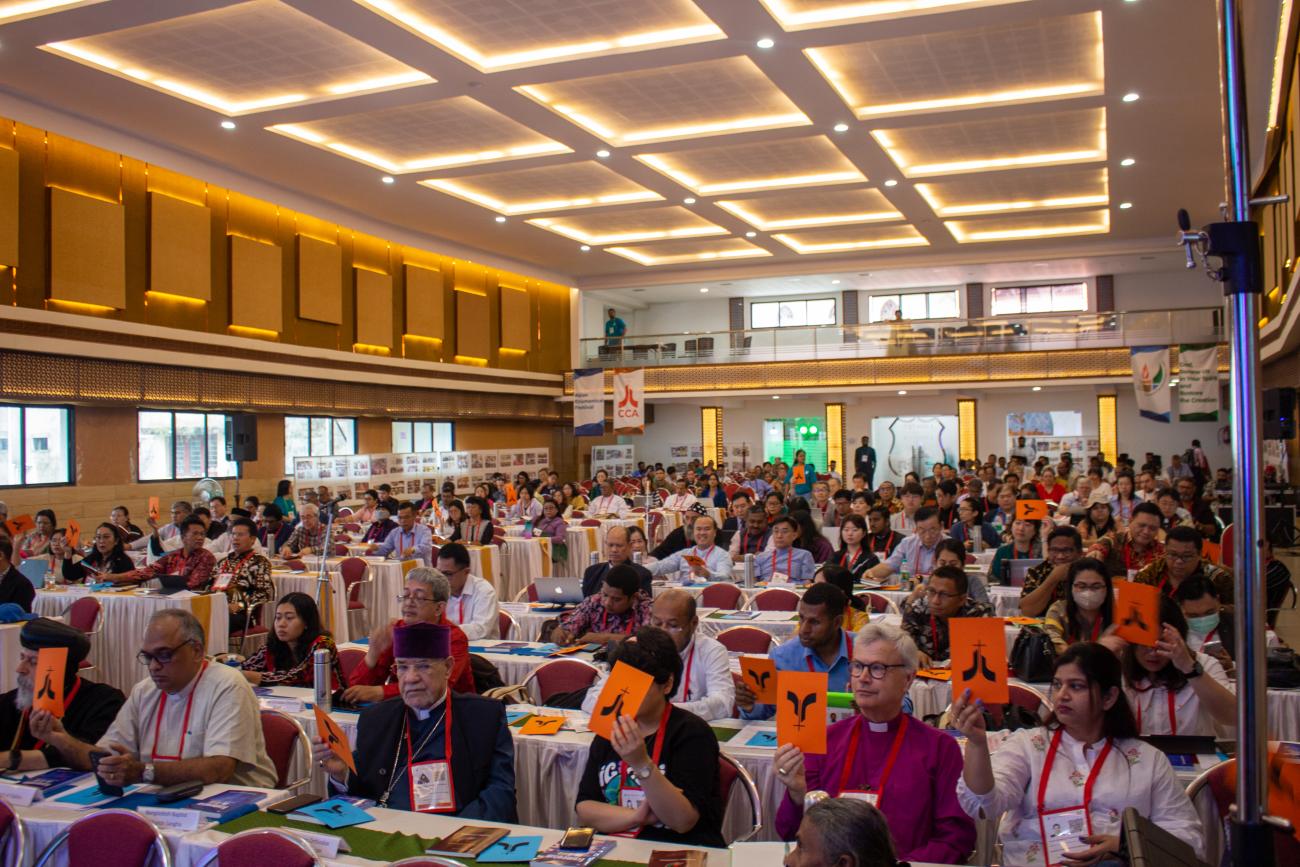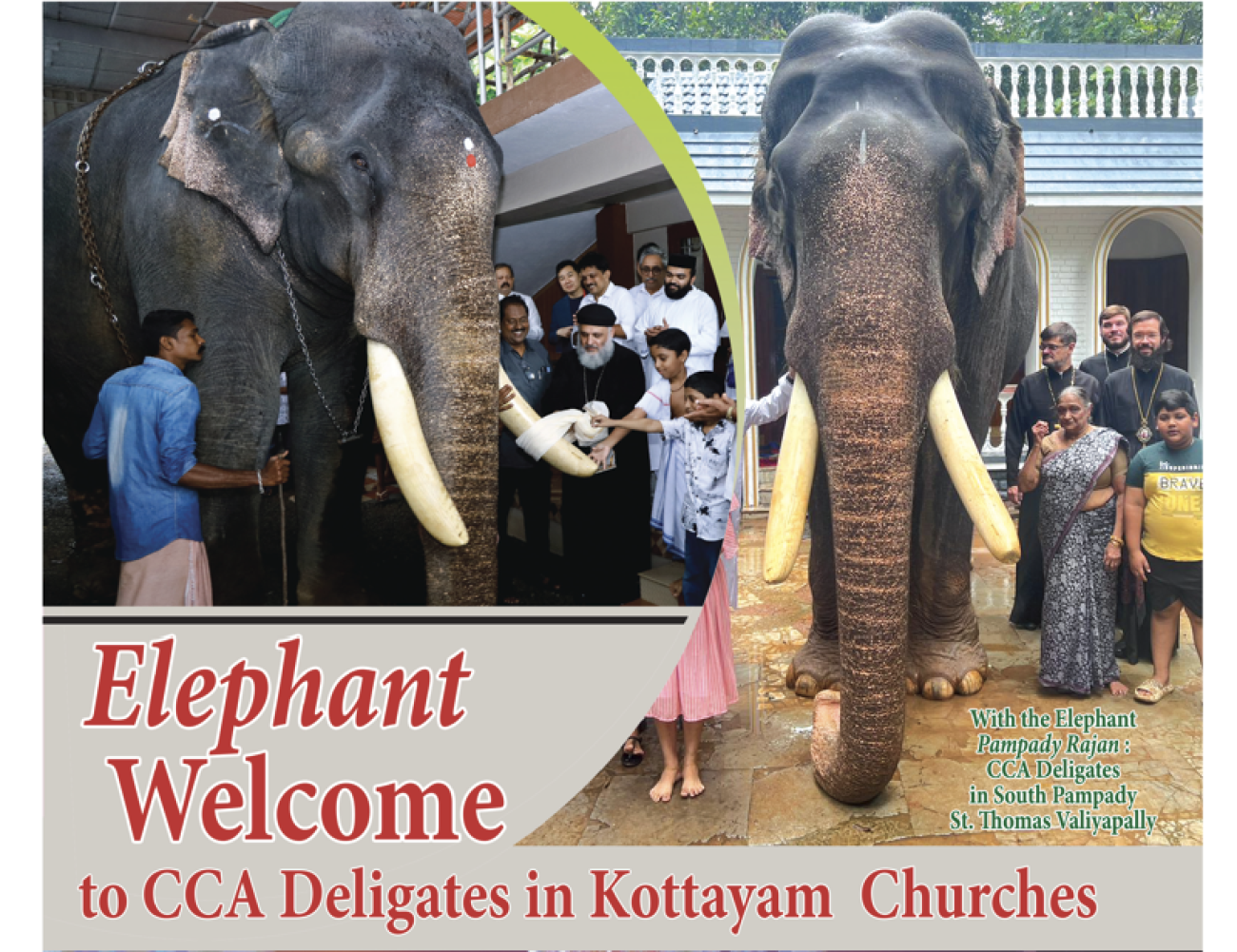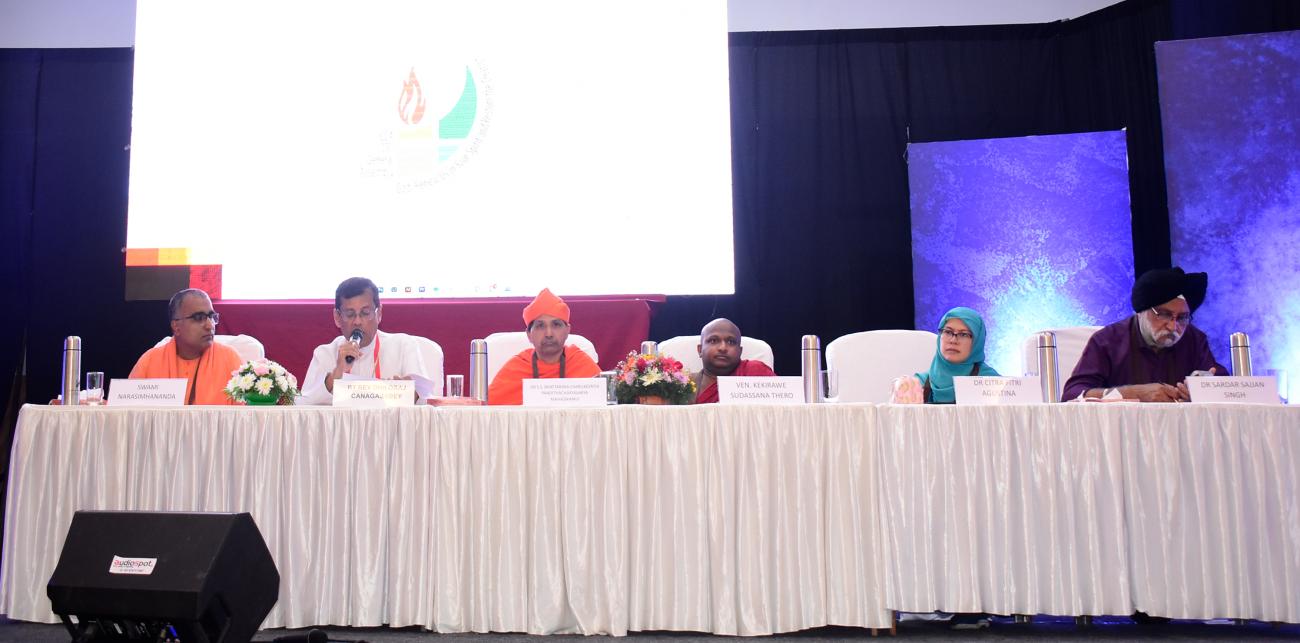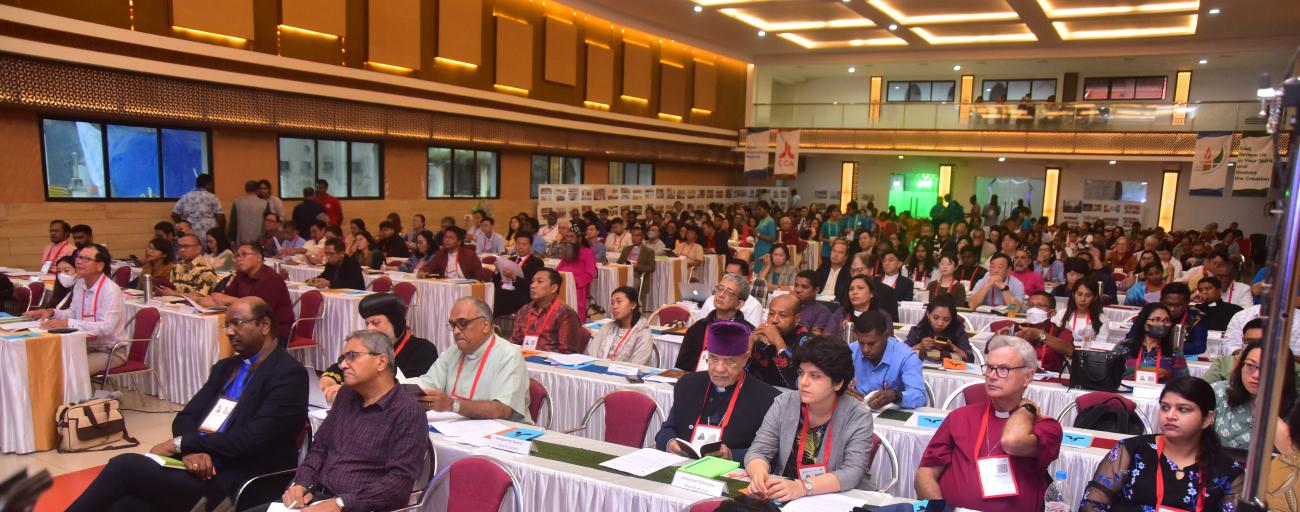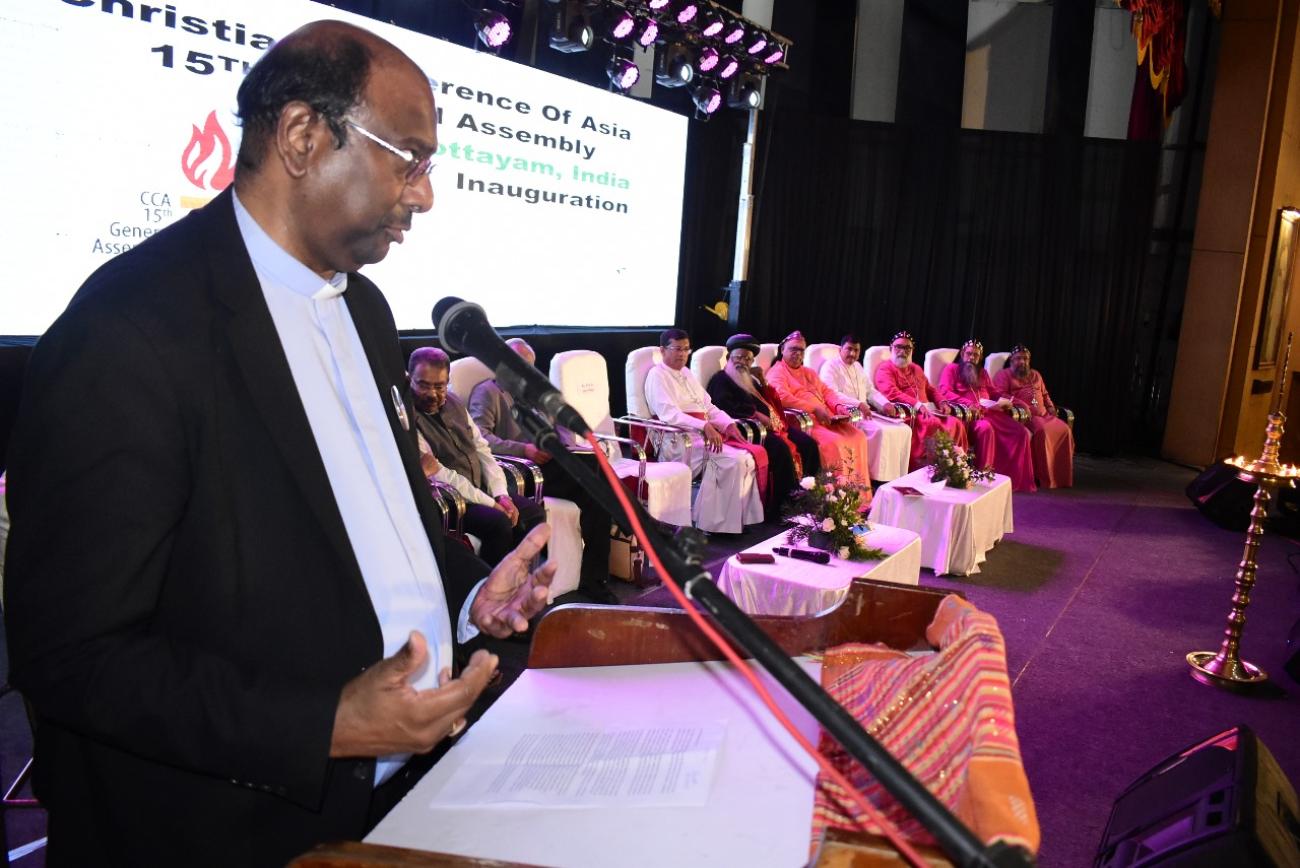IIPC FINAL STATEMENT

Submitted to the ICAAP Conference
19 August 2007, Colombo Sri Lanka
Representing the major religions of Asia, we were participants at the International Interfaith Pre-ICAAP Conference, organized by Asian Interfaith Network on AIDS (AINA), Christian Conference of Asia and the World Council of Churches on the theme "Response of Faith Communities to HIV and AIDS - Have We Kept the Promise?"
Having deliberated for three days on the role of faith communities in addressing HIV and AIDS, we recognize that the values of our religions compel us to respond to the human suffering caused by HIV and AIDS in our communities. These values also provide a unique and distinctive contribution to the overall response to the AIDS pandemic.
Recognising the dignity, sacredness, rights and responsibilities of individuals and communities, we are committed to work to overcome HIV in an inclusive manner, mobilising the human, spiritual, institutional and financial resources that our faith communities possess.
We dedicate ourselves to face the reality of HIV in our societies, to assess the needs in our communities and to prioritize our responses, considering our strengths and comparative advantages. We will also seek to identify and overcome our weaknesses, building on our achievements to make our communities competent in dealing with HIV and AIDS. To be accountable to the people we serve and the wider society, we will also ensure assessment of our progress and the impact we have in our own contexts.
In many ways, religious organizations have already been active in addressing all aspects of HIV and AIDS from raising awareness to providing treatment, care and support to those affected. But we know there is much more we must do, and we are committed to ensure that the tremendous social assets and competencies of our faith communities are energised to engage religious leaders, build partnerships and mobilize communities.
Engaging Leadership
We believe that religious leaders can and must play a constructive role in the response to HIV/AIDS. We are committed to educating and mobilising the leaders to advocate, educate and lead by example in their respective faith communities.
We will develop tools to train the leadership so that they can be effective public voices for raising awareness and reducing the stigma and discrimination so often associated with HIV and AIDS.
We will work to ensure that religious leaders at all levels are equipped to provide accurate, evidence-based information on preventing the spread of the virus, while at the same time focusing on the values and teachings in our faith traditions that also contribute to reducing HIV infections.
Building Partnerships
The enormity of the challenge requires partnerships of unprecedented range and scope. We as faith communities are resolved to develop new partnerships and to strengthen existing ones with other sectors.
We are committed to work in solidarity with people living with HIV and AIDS. We acknowledge that we have not done enough in this area, and have at times contributed to their sense of exclusion and stigmatization. We will work to build trust and to create inter-faith partnerships with positive networks at country, regional and local levels and encourage positive networks within our own communities. We are convinced that by working together we can defeat stigma and discrimination and create inclusive communities.
We emphasize the special role that inter-faith cooperation has played in building bridges across faiths and in helping us to address the challenges posed by HIV and AIDS more effectively. We are committed to strengthening such partnerships based on mutual respect and focussed on our shared values of human dignity, compassion, and love.
We are committed to strengthen AINA as an effective interfaith network at the regional level, so that it can advocate for the role of faith-based organizations, support national interfaith networks and help share information and coordinate our collective response to AIDS in Asia and the Pacific.
We are also committed to expand our partnerships with governments, UN agencies, NGOs, and other key actors to ensure that our faith communities have the financial, human, and material resources we need to be successful in controlling the pandemic. We are ready to work together, but we urge these sectors to respect and support the unique values and approaches that we as religious communities bring, even as we commit to respect their unique roles.
Mobilizing Communities
We believe that the response to the pandemic has to be centred in the community, and we commit to building caring, equitable communities that lead the way in supporting affected persons, encouraging openness, reducing stigma and discrimination, and addressing social inequities.
We will utilise the structures of our faith communities -- our places of worship, the educational and health facilities, our women’s and youth organizations – to provide the full range of prevention, treatment, care and support services.
We will work to incorporate HIV and AIDS information in appropriate ways into our worship rituals, our festivals, our religious education and training of future leaders.
We will also engage our faith communities in holding our governments and other international actors accountable for the commitments they have made to provide increased resources and to work towards universal access to treatment, prevention, care and support services.
In closing, we see this gathering as a starting point for closer cooperation in the future and are committed to carrying out follow up efforts in our countries and across the Asia-Pacific region.
In all these commitments, we seek guidance and support from the divine spirit that animates us and is the source of our being, so that we may play our part in "keeping our promises" to overcome HIV and AIDS and bringing healing and hope to all humanity.


